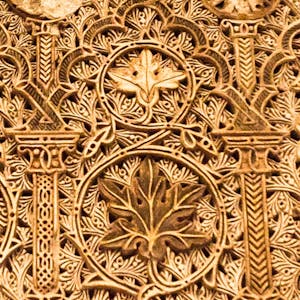This course delves into the intricate intercultural relations in medieval Spain, encompassing the coexistence of Jews, Christians, and Muslims. It explores conflicts, collaborations, and the unique role of the Jewish community as political and cultural intermediaries. Students will gain a comprehensive understanding of the complex historical dynamics that shaped the identities of Christian Hispania, Jewish Sefarad, and Islamic al-Andalus.
Throughout the course, learners will evaluate the origins and trajectory of conflicts between these communities, including the Muslim conquest of Spain, the Christian Reconquista, and the expulsions that marked this period. The course also offers insights into the tensions within communities, such as the conflicts between Christian Arian Visigoths and native Catholic Iberians.
By examining the historical processes that led to the creation and management of diverse communities, students will gain a profound appreciation for the collaborative and coexistent aspects of the medieval Spanish society. The Honors Track in this course employs an investigative process, guiding students through the critical analysis of events, people, places, and artifacts, enabling them to develop a comprehensive understanding of the historical context.
Certificate Available ✔
Get Started / More Info
This course is divided into five modules, each focusing on distinct historical periods in medieval Spain, from the Visigothic era to the creation of Catholic Spain. Students will explore the development of dynamic cultures, the forging of a Christian future, and the rejection of religious diversity, culminating in an evaluation of Iberia's past.
MODULE 1: Introduction to Medieval Spain and Coexistence (418-711 CE)
MODULE 2: Developing Dynamic Cultures: Islamic Al-Andalus and Jewish Sefarad (711-1212 CE)
MODULE 3: Forging A Christian Future: Christian Spain (711-1212 CE) and the Castilian Ascent In Spain (1212-1347 CE)
MODULE 4: Creating Conversos and Rejecting Religious Diversity: Catholic Spain (1347-1502 CE)
MODULE 5: Interpreting Iberia's Past: Our Evaluation of the Evidence
This hands-on specialization explores basic graphic design elements, color theory, images, publication design, and effective layouts. It covers typography, the creative...
Religion and Thought in Modern China: the Song, Jin, and Yuan offers a diverse exploration of Chinese cultural history, focusing on paradigm shifts in rationality...
Explore the harrowing history of the Holocaust in this comprehensive course, delving into the origins of the Final Solution, responses from both Jewish and non-Jewish...
Ukraine: History, Culture and Identities is an in-depth exploration of Ukraine's rich history, culture, and society, spanning from the Middle Ages to the present...